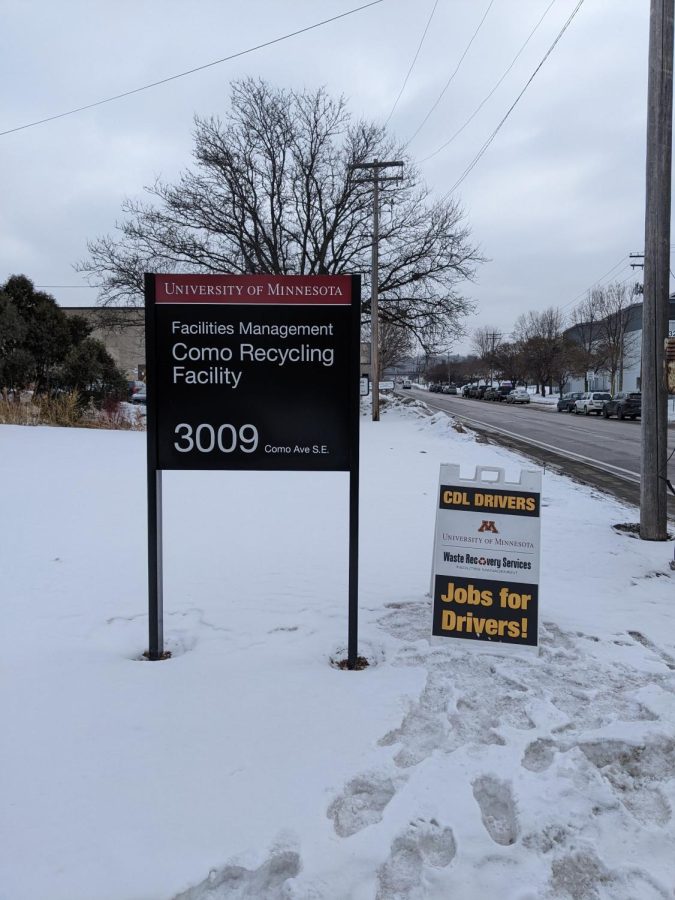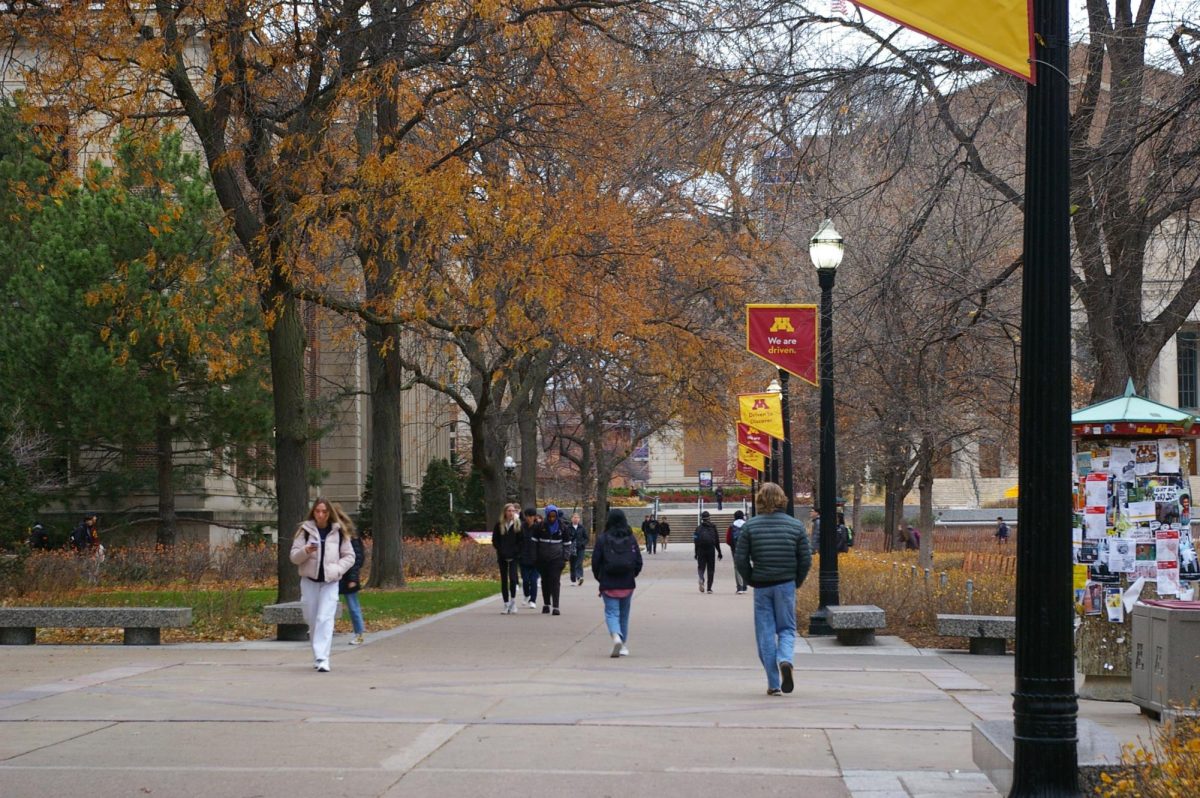As contract negotiations approach in April for unionized custodial and waste management workers, some employees are calling for increased accountability and sustainable practices in waste and facilities management at the University of Minnesota.
Workers say they want more involvement in the development of sustainability plans at the University among other demands according to Teamsters Local 320 representative Jackson Kerr.
Custodial and waste management staff said they want to be involved in the rewriting of the University’s Climate Action Plans (CAP), which outlines strategies to reduce greenhouse gas emissions and implement sustainable practices such as developing recycling and waste management.
As part of the CAP, the University began a composting program on campus three years ago. Since then, the program has been introduced on a building by building basis, according to Linda Weingarten, Director of Central Services in Facilities Management.
According to Christine O’Connor, an administrative senior building and grounds worker, staff were trained with a 15-minute video and given a pair of tongs to sort through trash. The tongs are used to pick out cans or incorrectly placed trash that ends up in the compost. When trash needs to be sorted with tongs it increases the time needed to process waste.
O’Connor has worked as a janitor for the University for 23 years and said she thinks the training of custodial and waste management staff across the University has been inconsistent, leading sustainability efforts, like composting, to cause more harm than good.
“Some people were shown what can or can’t go in the compost, but others rely on the pictures,” O’Connor said. “It’s difficult when waste is different in buildings, such as food vendors like Panda Express and Starbucks, which have different composting practices.”
Weingarten said she thought training has been consistent from the University, but the environmental inefficiencies stem from students, faculty and staff disposing of waste improperly.
“We know our staff feel frustrated by some of the general population who do not properly place their waste into the appropriate bins or put everything into the trash,” Weingarten said.
In an effort to keep recycling and organics free from contamination, staff spend extra time separating misplaced trash, according to Weingarten.
The waste management center has received turf, athletic tape, cleats and full plastic bottles of water in the trash from athletics buildings, ReUse Center worker Tyler Miller said. The ReUse Center collects office furniture, supplies and equipment from around campus and makes them available to University departments or individuals for purchase.
“Once [University administrators] deal with this on a daily basis, they will realize how unreachable some of the zero waste goals they created are without the resources and staffing available,” Miller said.
Working alone to complete labor-intensive tasks with limited resources and time has also resulted in environmental unsustainability, according to delivery service driver Joe VanGuilder.
When VanGuilder started working at the University eight years ago, he was in charge only of picking up recycling. Now, VanGuilder picks up and delivers recycling, biohazard and other miscellaneous materials as part of his responsibilities.
“I spend more of my day rearranging my truck to get as many stops in as possible than actually doing my job,” VanGuilder said.
Garbage truck workers also often run two to three routes to pick up all forms of waste due to limited numbers of drivers, according to VanGuilder.
“If I go to my first stop and I have a lot of chairs to pick up, I might as well go back to the ReUse Center to drop them off to avoid breaking or moving them, which defeats the purpose of one truck picking up everything,” VanGuilder said.
Many frontline workers said they are advocates for net-zero carbon emissions and want to advance sustainable practices, but feel the University has not supported these efforts internally.
“The University has to show they are committed to sustainability,” VanGuilder said. “Without us, they can’t reach those goals and we should be a part of the conversation.”



















